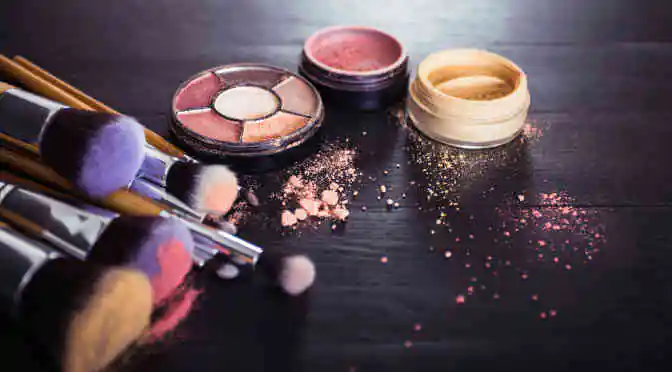With the evolution of a collective eco-ethical consciousness amongst consumers, ‘vegan’ and ‘organic’ labels on cosmetic packaging are ubiquitous. However, there is a third label that’s not quite green yet is becoming a common sight – ‘halal.’ An Arabic term which implies that said cosmetic or food products have been manufactured in line with and are composed of, ingredients acceptable under Islamic Sharia law. Seeing the growing demand for halal make-up products, top cosmetic brands are beginning to include the same in their lineup.
Halal cosmetics are witnessing an upsurge in demand and popularity, not just from the Muslim population, but also from a rising number of health-conscious consumers on the global stage who are paying close attention to the cosmetic products they use on their bodies. In order to become a certified halal cosmetics brand, the companies in the beauty industry must avoid the use of alcohol and animal ingredients, while ensuring that the finished product isn’t tested on animals.
Abiding by stringent regulations poses as a key challenge
Although the associated market is displaying an impressive CAGR and witnessing a high rate of adoption, it is still an uphill climb for brands in this relatively new industry. No supreme organization governs halal certification for cosmetic products, resulting in various countries developing their own standards. Also, the different definitions of halal from distinct sects of Islam has made the development of a common standard, a complicated task indeed.
Further, the practice of halal is not only restricted to the ingredients and manufacturing processes of these products, but it applies to all the activities involved in the associated supply chain. Meaning, vendors must take immense care to comply with Islamic obligations while products are prepared and packed, and ensure that the products are not contaminated by any ‘haram’ or prohibited ingredients.
Standardization and growing Muslim population will aid this industry
While these challenges seem daunting for vendors and consumers to overcome, they are trumped by some remarkable growth drivers that have resulted in a highly contested global market for halal cosmetics. The major reason for the industry growth is the rising Muslim population across the world, which will ultimately result in more awareness and demand for halal cosmetic products. This has prompted top cosmetic brands to offer a range of products that comply with the strict requirements per halal, while also being highly desirable and cost-effective.
With its high-quality standards and absence of any animal by-products, halal cosmetics are regarded as safe alternatives to regular cosmetics and thereby provide a responsible option for the health and environmentally conscious consumers. Also, as more standardized accreditation agencies are emerging, the confidence of consumers towards certified halal products is undeniably increasing.
Experts opine a highly profitable, fast evolving market
Halal cosmetics is all set to overgrow its niche, from being products specially made for Muslim consumers to a wider demographic comprising of health-conscious buyers from diverse religions. Technavio’s industry experts have compiled a comprehensive market research report to help stakeholders understand the possibilities associated with this trending industry. The report can be sampled for FREE from the linked provided herein.



